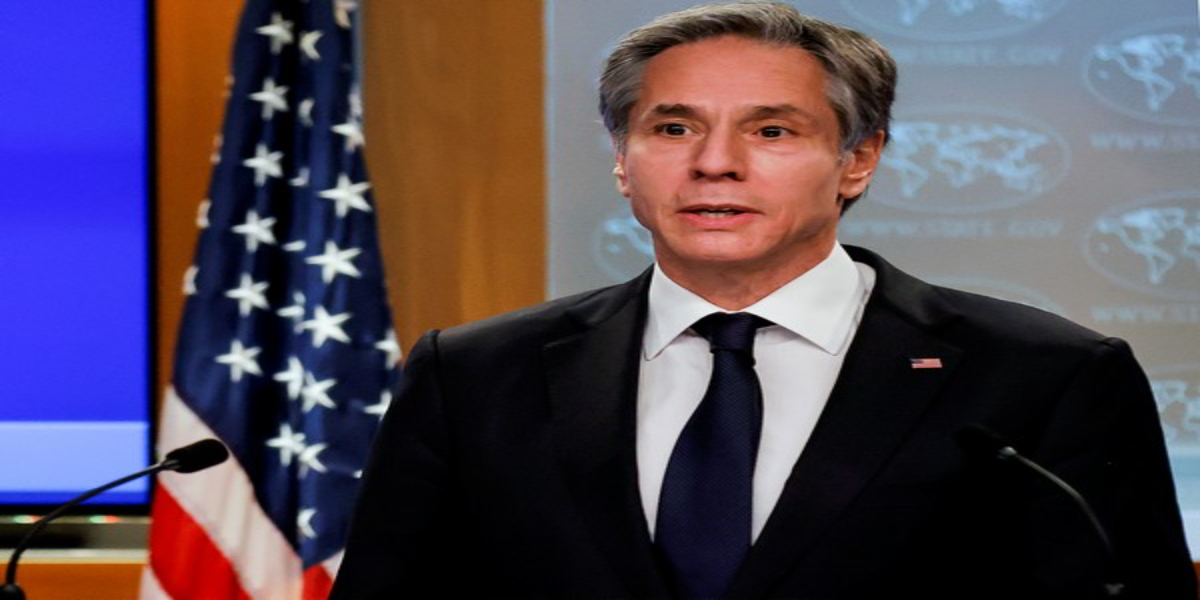WASHINGTON:
The US does not want China to be cut off from the global economy, but it does want Beijing to follow international laws, according to US Secretary of State Antony Blinken, who delivered a long-awaited speech on Thursday on the US policy for dealing with China’s ascent as a great power.
Blinken stated that Washington will not obstruct China’s economic growth or attempt to modify Beijing’s political system, but that it will protect international law and institutions that promote peace and security and allow countries to coexist, including the United States and China.
“We are not searching for a new Cold War or confrontation. On the contrary, we’re adamant about avoiding both “In a 45-minute address at George Washington University, Blinken discussed the following topics:
Under the Trump administration, US-China relations sank to their lowest point in decades, and have only worsened under President Joe Biden, who has so far maintained his Republican predecessor Donald Trump’s sweeping tariffs on Chinese goods while also pursuing closer ties with allies in the Indo-Pacific and beyond to counter Beijing’s growing influence.
Biden, a Democrat, had come under fire from Republicans and some foreign policy experts for failing to announce a clear plan on China, the world’s second-largest economy after the United States and Washington’s major strategic adversary, 17 months into his presidency.
Foreign crises, including as the tumultuous US exit from Afghanistan last year and Russia’s war in Ukraine, have served as distractions for Biden, who has promised not to allow China to overtake the United States.
However, his administration has sought to capitalise on renewed ally solidarity sparked by the Ukraine crisis and China’s “no-limits” cooperation with Moscow declared only weeks before the invasion on February 24.
Blinken’s address comes as China’s foreign minister embarks on a wide tour of Pacific island countries, a tense front in the fight for influence between Beijing and Washington and its allies.
According to Blinken, Washington is still focused on China, which poses “the most significant long-term risk to the international system.”
‘Repressive’
China’s unfair trade practises, such as state-led subsidies and market access obstacles, as well as its expanding economic coercion toward other countries, have long been a source of contention for the United State
While Blinken praised the Chinese people’s hard work for their country’s historic economic change over the last four decades, he slammed Chinese President Xi Jinping.
“The ruling Chinese Communist Party has become more oppressive at home and more aggressive abroad under President Xi,” he said, adding that the party was using its authority to undermine the ideals and institutions that had allowed it to succeed.
He outlined the parameters of a strategy to invest in US competitiveness and align with allies and partners to compete with China in the speech, referring to the competition as “ours to lose.”
Blinken said the Biden administration was willing to increase direct dialogue with Beijing on a wide range of problems, and that if Chinese authorities took action, the administration would “react positively.”
“However, we cannot count on Beijing to alter its course. As a result, we will create the strategic environment around Beijing in order to achieve our goal of a global system that is open and inclusive “he stated
[embedpost slug=”chinas-support-of-putin-should-raise-alarm-bells/”]
Even while the US has formally maintained its long-standing policy of strategic ambiguity on whether it would defend Taiwan militarily, increased US backing for the Chinese-claimed democratic island of Taiwan remains a source of conflict.
Even though Biden warned earlier this week that the US would intervene militarily if China attacked Taiwan, Blinken reaffirmed the US commitment to the one-China policy. His words, he and his aides later acknowledged, did not indicate a policy shift.
Despite being constrained by the one-China policy, Washington recognises Beijing diplomatically rather than Taipei.
“What has changed is Beijing’s growing coercion, like trying to cut off Taiwan’s relations with countries around the world, and blocking it from participating in international organisations,” Blinken said, adding that the Chinese military’s nearly daily activity near the island was “deeply destabilising.”




















